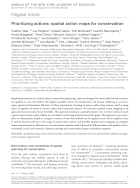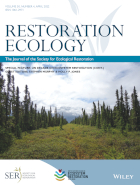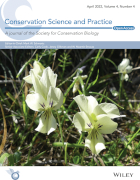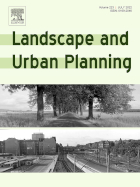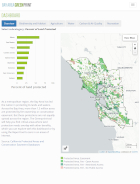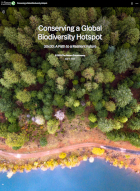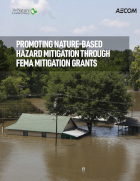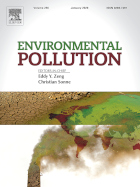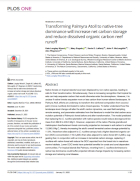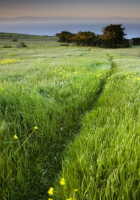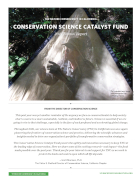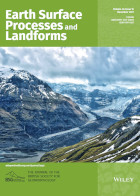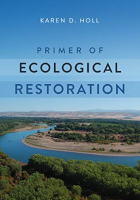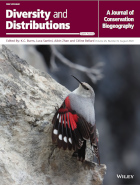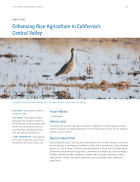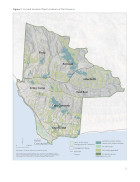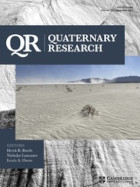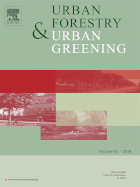In California, a day’s drive can take a visitor from record-setting desert heat to glaciated peaks to temperate rainforests with the world’s tallest trees. This astounding climatic and landscape diversity has helped create a biodiversity hotspot. California is also an economic hotspot – the 6th largest economy in the world – and is home to nearly 40 million people. The demand for land for new development and farms, along with accelerating climate change, puts tremendous stress on ecosystems, and the benefits they provide.
The state’s legacy of conservation has created a network of natural and working lands that benefit people by supplying clean water, capturing carbon, and directly contributing to the state’s economic and cultural vitality through recreation, tourism, and agricultural production. Conservancy scientists work across the spectrum of ecosystem types and human land uses, to advance conservation goals that also contribute to the well-being of people in those places.
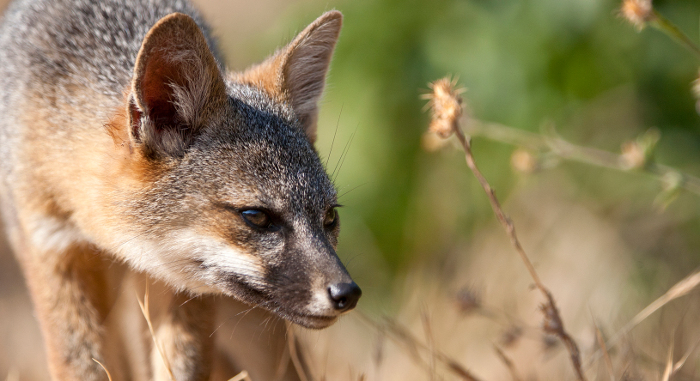
Wildlands
Nearly half of California is protected in some land status that prevents most kinds of intensive…>>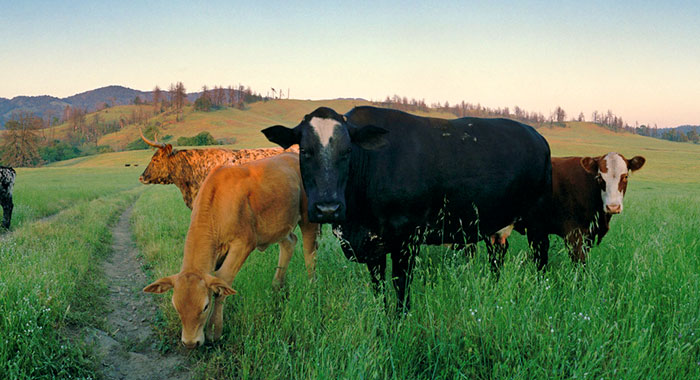
Harvested Landscapes
A third of California is privately-owned forestland, woodland or grassland. From redwood forests on…>>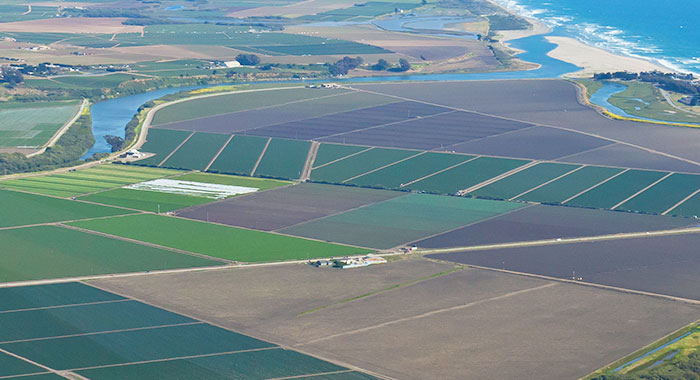
Cultivated Landscapes
California is the leading agricultural state in the country and it’s agriculture generates…>>
Urban Areas and Infrastructure
With California’s population on track to reach 50 million people, the demand for energy,…>>Science in Action
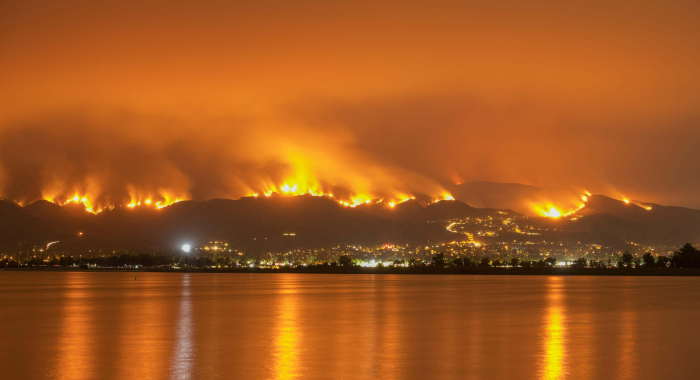
Terrestrial | Planning | Technology
Wildfire and Communities
How can land protection and restoration help protect communities from wildfire?

Terrestrial | Marine | Science
TNC and FEMA
How do we increase climate resilience in ways that work for people and nature?
2022 | Freshwater | Terrestrial | Marine | Planning | Technology | Science | Publications & Reports
Prioritizing actions: spatial action maps for conservation
Heather Tallis, Joe Fargione, Edward Game, Rob McDonald, Leandro Baumgarten, Nirmal Bhagabati, Rane Cortez, Bronson Griscom, Jonathan Higgins, Christina M. Kennedy, Joe Kiesecker, Timm Kroeger, Trina Leberer, Jennifer McGowan, Lisa Mandle, Yuta J. Masuda, Scott Morrison, Sally Palmer, Rebecca Shirer, Priya Shyamsundar, Nicholas H.Wolff, and Hugh P. Possingham
Spatial analysis is a powerful tool in conservation planning. Yet it is often under-deployed as a means of elucidating which conservation actions may deliver the highest return on investment. This…2022 | Freshwater | Terrestrial | Publications & Reports
Restoration richness tipping point meta-analysis: finding the sweet spot
Christopher J. Lortie, Maria Florencia Miguel, Alessandro Filazzola, Harry Scott Butterfield
Climate change, drought, and water scarcity are driving major land transformations in dryland ecosystems globally. Historically these ecosystems have been disproportionately degraded due to widespread…2022 | Terrestrial | Planning | Technology | Science | Publications & Reports
A framework to select strategies for conserving and restoring habitat connectivity in complex landscapes
D. Richard Cameron, Carrie A. Schloss, David M. Theobald, Scott A. Morrison
Protecting or restoring habitat connectivity in landscapes undergoing rapid environmental change requires multiple conservation and restoration strategies. These strategies have different risk…2022 | Terrestrial | Planning | Science | Data
The Resilient Connected Network in California
Carrie Schloss, Dick Cameron, Elizabeth McGovern
As declines in biodiversity are further exacerbated by changing climate conditions, it is critical to ensure that plants and animals are resilient to the effects of climate change. This means…2022 | Terrestrial | Planning | Technology | Science | Publications & Reports
The influence of model frameworks in spatial planning of regional climate-adaptive connectivity for conservation planning
Hyeyeong Choe, Annika T.H. Keeley, D. Richard Cameron, Melanie Gogol-Prokurat, Lee Hannah, Patrick R. Roehrdanz, Carrie A. Schloss, James H. Thorne
Planning for connectivity conservation often relies on modeled movement routes. However, these pathways can be sensitive to the conservation objective, modeling approach, analysis tool, and…2022 | Freshwater | Terrestrial | Marine | Planning | Technology | Science | Maps & Webmaps
The Mitigation Wizard
Carrie Schloss, Liz O’Donoghue, Dan Rademacher, Patric Huber, Jodi McGraw, Kim Becerril, Janine Knapp
Every year, infrastructure agencies and developers spend hundreds of millions of dollars to mitigate for impacts to sensitive species and habitats. These mitigation sites are often piecemeal projects,…2022 | Terrestrial | Planning | Science | Maps & Webmaps
Conserving a Global Biodiversity Hotspot, 30x30: A Path to a Resilient Future
In October 2020, Governor Newsom signed an executive order committing to protect 30% of California by 2030. This could put California on a trajectory to stem the biodiversity crisis. But, where this…2022 | Terrestrial | Planning | Technology | Science | Publications & Reports
“No-regrets” pathways for navigating climate change: planning for connectivity with land use, topography, and climate
Carrie A. Schloss, D. Richard Cameron, Brad H. McRae, David M. Theobald, and Aaron Jones
Plant and animal species are already shifting their ranges in response to a changing climate. Maintaining connectivity between present habitat and suitable habitat in the future will become…2022 | Freshwater | Terrestrial | Marine | Planning | Publications & Reports
The Guidebook for FEMA Hazard Mitigation Grants: Promoting Nature-Based Mitigation Through FEMA Mitigation Grants
The Nature Conservancy, AECOM
With increase in devasting storms and wildfires due to climate change, we need solutions to help mitigate the impact. Traditionally, “gray” or “hard” infrastructure…2022 | Freshwater | Terrestrial | Technology | Science | Publications & Reports
Quantity and fate of synthetic microfiber emissions from apparel washing in California and strategies for their reduction
Roland Geyer, Jenna Gavigan, Alexis M. Jackson, Vienna R. Saccomanno, Sangwon Suh, Mary G. Gleason
Synthetic microfibers are the most prevalent type of microplastic and apparel washing is a major source of microfiber pollution. Using California as a case study to estimate the magnitude of…2022 | Freshwater | Terrestrial | Marine | Science | Publications & Reports
Transforming Palmyra Atoll to native-tree dominance will increase net carbon storage and reduce dissolved organic carbon reef runoff
Kate Longley-Wood, Mary Engels , Kevin D. Lafferty, John P. McLaughlin, Alex Wegmann
Native forests on tropical islands have been displaced by non-native species, leading to calls for their transformation. Simultaneously, there is increasing recognition that tropical forests can help…2022 | Terrestrial | Science | Publications & Reports
Oren Pollak Memorial Research Fund - 2022 RFP
The Oren Pollak Memorial Research Fund was established in 2000 in memory of Dr. Oren Pollak, a leading grassland ecologist and restoration pioneer, as well as an ardent champion and mentor for…2022 | Freshwater | Terrestrial | Marine | Science | Publications & Reports
Conservation Science Catalyst Fund - 2021 Annual Report
The Nature Conservancy deploys science to help overcome major challenges facing people and nature. In today’s fast-paced world, turning threats to nature into opportunities for conservation…2021 | Freshwater | Terrestrial | Planning | Science | Publications & Reports
Using information on forest succession to advance strategies for salmon recovery and carbon storage in meandering river systems
John C. Stella, Li Kui, Gregory H. Golet, Frank Poulsen
Streamside forests are incredibly important for fish, birds and other wildlife. They are also valuable for storing carbon which is needed to combat climate change. This is especially the case in…2021 | Freshwater | Terrestrial | Planning | Science | Publications & Reports
Sacramento River: balancing ecological and social restoration goals to restore riparian habitat along a lowland floodplain river, California, USA
Case study by: K.D. Holl, G.H. Golet
Advancing conservation requires understanding the constraints imposed on natural systems by human societies. This understanding typically comes from engagement with local stakeholders, as opposed…2021 | Freshwater | Terrestrial | Science | Publications & Reports
Integrating citizen science data with expert surveys increases accuracy and spatial extent of species distribution models.
O.J. Robinson, V. Ruiz-Gutierrez, M.D. Reynolds, G.H. Golet, M. Strimas-Mackey and D. Fink
Information on species’ habitat associations and distributions, across wide spatial and temporal scales, is fundamental for guiding conservation. Yet these data are often in short supply. In…2021 | Terrestrial | Planning | Science | Publications & Reports
Enhancing Habitat Value for Shorebirds in Rice Agriculture
Case study by: Khara Strum (Audubon California), Kristin Sesser (Point Blue Conservation Science), Greg Golet (TNC)
This case study communicates lessons learned by TNC and partners from years of research and monitoring of habitat enhancement projects in Sacramento Valley rice agriculture. It is a contribution to…2021 | Terrestrial | Marine | Planning | Technology | Science | Publications & Reports
Jack and Laura Dangermond Preserve Invasive Plant Species Action Plan
Moses Katkowski, H. Scott Butterfield, John Knapp, Kelly Easterday, Laura Riege, Mark Reynolds
This 5-year action plan describes the vision for invasive plant species mapping, monitoring and treatment at the Jack and Laura Dangermond Preserve in Sourthern California. The plan is adaptive and…2021 | Terrestrial | Science | Publications & Reports
Assessing the reliability of raptor pellets in recording local small mammal diversity
Maria C Viteri, Mary Allison Stegner, Elizabeth A. Hadly
Biodiversity monitoring is a core part of conservation practice, however all sampling methods include biases. In particular, small mammal live-trapping, the field standard, produces highly skewed…2021 | Freshwater | Terrestrial | Planning | Technology | Science | Publications & Reports
Planting Stormwater Solutions: A methodology for siting nature-based solutions for pollution capture, habitat enhancement, and multiple health benefits
Kelsey Jessup, Sophie S. Parker, John M. Randall, Brian S. Cohen, Rowan Roderick-Jones, Shona Ganguly, Jill Sourial
This paper presents results from Planting Stormwater Solutions, part of TNC’s Urban Conservation work in Los Angeles. The authors develop a methodology to prioritize siting of vegetated…